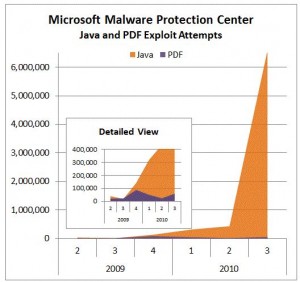From: Jake Kouns <jkouns () opensecurityfoundation org>
Date: Sat, 23 Oct 2010 23:42:40 -0400
http://blogs.sfweekly.com/thesnitch/2010/10/zynga_facebook_lawsuit.php No matter what they do, some companies seem chronically incapable of playing peacefully in the sandbox of American capitalism with others. San Francisco-based game developer Zynga -- the wildly successful firm behind such popular Facebook applications as FarmVille and Mafia Wars -- is one of them, and is now facing a class-action lawsuit driven by customer allegations of privacy abuses. The lawsuit, filed Monday in San Francisco's federal court by Minnesota resident Nancy Graf, comes on the heels of a Wall Street Journal investigation into the sharing of users' personal data by Facebook and Zynga. The Journal found that Zynga games such as FarmVille and FrontierVille were sending information identifying gamers to third parties, which use the data to assemble profiles of internet users and track people online for advertising purposes. Even those who have set their Facebook privacy settings to the strictest level can be affected by such breaches, according to the Journal, which also reports that this sort of sharing of user data by app developers is in violation of Facebook's rules. (Facebook is also coming in for its share of the blame, as evidenced by a similar lawsuit in Rhode Island.) Graf's lawsuit asks for an injunction to prevent continued sharing of user information, as well as monetary damages. The suit doesn't state how much she is seeking.
